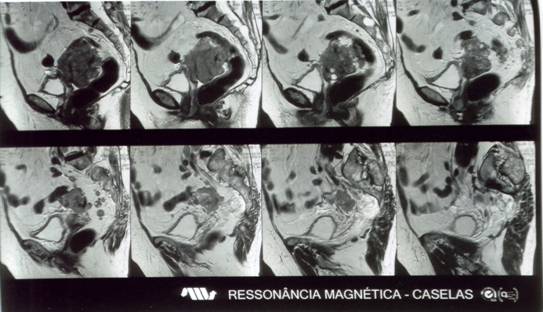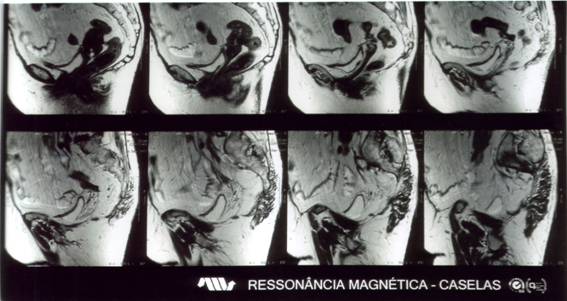Case: R. da S.
Cancer treated by complementary alternative medicine in support to chemotherapy
By Serge Jurasunas
Clinical case: Caucasian female of 62 years old. Uterine carcinoma with hemorragy diagnosed in May 2007 (RMI – Biopsy etc.) chemotherapy/radiation protocol.
Introduction: Chemotherapy/radiation is not very effective on an operable large tumor with a metastasis condition. In this case we have a tumor of 6 cm wide demonstrating extensive infiltration neoplasic lesions to the wall of rectum, possible invasion to bladder and many large adenopathies of about 2 cm localize to iliac territory, ganglions and peritoneal area as show by the RMI.
From our clinical experience and by the number of cancer patients coming to our Institute we observed that indeed anticancer drugs treatment may decrease to some extend large (non resistant) tumor and eventually eliminated or reduce few adenopathies but never in totality. While in the same time the mainstream treatment may develop strong adverse effects and affect the health condition of patients. Radiation in turn may induce inflammatory process to stimulate metastasic invasion and may burn to some extend tissue with damaging effect including to bladder.

Before
June 2007 – The patient come to our Institute in bad physical condition from adverse effects of chemotherapy: fatigue, vomiting, nervousness, poor appetite, etc.
We build up a protocol base on a combination therapy that includes a natural chemotherapeutic agent to target cancer cells, an antiangiogenic therapy a immunomodulator support to balance the immune cells activity. Usually lower from chemotherapy an antioxidant therapy to combine a double role of antioxidant and prooxidant, meaning to decrease oxidative stress on healthy cells but selectively to increase cytotoxicity to cancer cells. The goal is to target cancer cells in many directions as possible and by the same time reduce or eliminate toxic adverse effects.
An agressive diet is suggested to boost the immune system. Food include whole grains, cereals, stem vegetables, shitake mushroom, barley soup, onions, kéfir, sesame oil, fresh daily vegetable juice and fruits.
